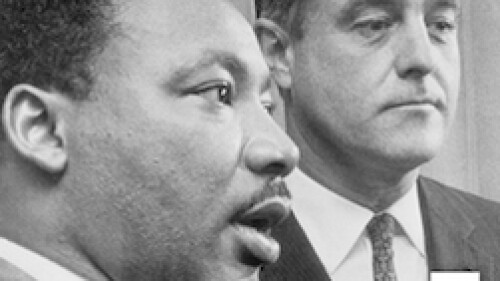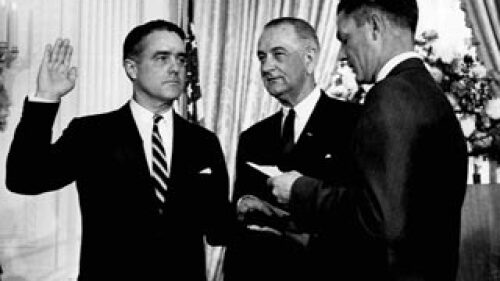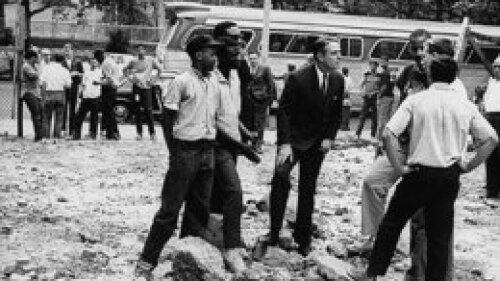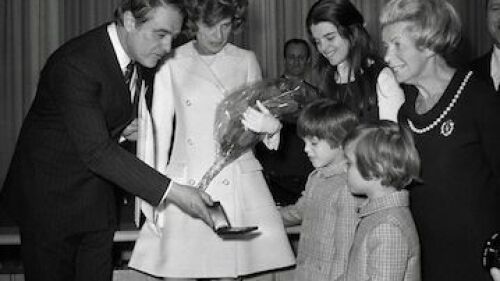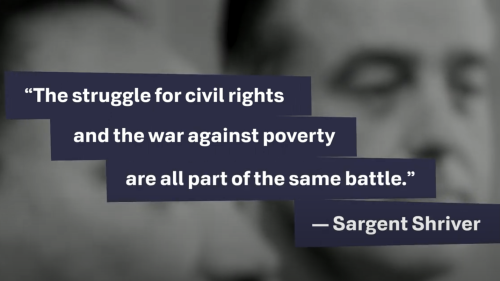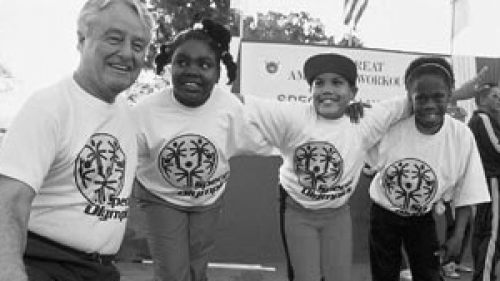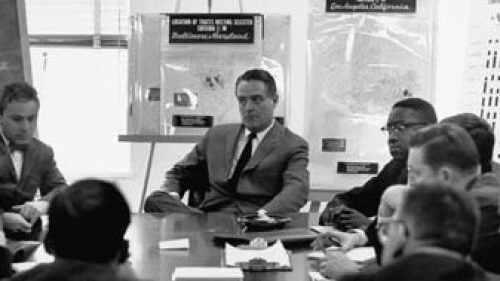About Sargent Shriver
Sargent Shriver was one of our nation’s most influential public figures. His legacy of social innovation and achievement is rooted in his spiritually driven idealism and formidable political skill—cultivating allies, engaging critics, and working tirelessly to promote public understanding of his ambitious and often controversial programs and proposals. The breadth and reach of this legacy is illuminated by the set of core values Sarge carried with him and shared throughout his lifetime: civil rights, peace-building, political leadership, empowerment government, equal opportunity, service, faith, and family.
From positions of power throughout his career, Sarge championed the civil rights of dignity, opportunity, and justice for all
In his roles as public servant and citizen diplomat, Sarge is an icon of skilled and effective progressive political leadership
Sarge developed and tested his practical approach to peacebuilding as founding director of the Peace Corps
Sarge’s pioneering approach to empowerment government is exemplified in his leadership of the War on Poverty
Sarge served as US Ambassador to France during the Vietnam war--a key time for international diplomacy
Sarge leveraged his clout in both the political and religious spheres to reduce the threat of nuclear war
Sarge joined with his wife, Eunice Kennedy Shriver, in a life-long commitment to serving people with intellectual disabilities
Sargent Shriver urged attorneys to play a role in achieving justice and opportunity for low-income communities.

